Spandan Das
DatBench: Discriminative, Faithful, and Efficient VLM Evaluations
Jan 05, 2026Abstract:Empirical evaluation serves as the primary compass guiding research progress in foundation models. Despite a large body of work focused on training frontier vision-language models (VLMs), approaches to their evaluation remain nascent. To guide their maturation, we propose three desiderata that evaluations should satisfy: (1) faithfulness to the modality and application, (2) discriminability between models of varying quality, and (3) efficiency in compute. Through this lens, we identify critical failure modes that violate faithfulness and discriminability, misrepresenting model capabilities: (i) multiple-choice formats reward guessing, poorly reflect downstream use cases, and saturate early as models improve; (ii) blindly solvable questions, which can be answered without images, constitute up to 70% of some evaluations; and (iii) mislabeled or ambiguous samples compromise up to 42% of examples in certain datasets. Regarding efficiency, the computational burden of evaluating frontier models has become prohibitive: by some accounts, nearly 20% of development compute is devoted to evaluation alone. Rather than discarding existing benchmarks, we curate them via transformation and filtering to maximize fidelity and discriminability. We find that converting multiple-choice questions to generative tasks reveals sharp capability drops of up to 35%. In addition, filtering blindly solvable and mislabeled samples improves discriminative power while simultaneously reducing computational cost. We release DatBench-Full, a cleaned evaluation suite of 33 datasets spanning nine VLM capabilities, and DatBench, a discriminative subset that achieves 13x average speedup (up to 50x) while closely matching the discriminative power of the original datasets. Our work outlines a path toward evaluation practices that are both rigorous and sustainable as VLMs continue to scale.
Luxical: High-Speed Lexical-Dense Text Embeddings
Dec 11, 2025Abstract:Frontier language model quality increasingly hinges on our ability to organize web-scale text corpora for training. Today's dominant tools trade off speed and flexibility: lexical classifiers (e.g., FastText) are fast but limited to producing classification output scores, while the vector-valued outputs of transformer text embedding models flexibly support numerous workflows (e.g., clustering, classification, and retrieval) but are computationally expensive to produce. We introduce Luxical, a library for high-speed "lexical-dense" text embeddings that aims to recover the best properties of both approaches for web-scale text organization. Luxical combines sparse TF--IDF features, a small ReLU network, and a knowledge distillation training regimen to approximate large transformer embedding models at a fraction of their operational cost. In this technical report, we describe the Luxical architecture and training objective and evaluate a concrete Luxical model in two disparate applications: a targeted webcrawl document retrieval test and an end-to-end language model data curation task grounded in text classification. In these tasks we demonstrate speedups ranging from 3x to 100x over varying-sized neural baselines, and comparable to FastText model inference during the data curation task. On these evaluations, the tested Luxical model illustrates favorable compute/quality trade-offs for large-scale text organization, matching the quality of neural baselines. Luxical is available as open-source software at https://github.com/datologyai/luxical.
MATES: Model-Aware Data Selection for Efficient Pretraining with Data Influence Models
Jun 10, 2024Abstract:Pretraining data selection has the potential to improve language model pretraining efficiency by utilizing higher-quality data from massive web data corpora. Current data selection methods, which rely on either hand-crafted rules or larger reference models, are conducted statically and do not capture the evolving data preferences during pretraining. In this paper, we introduce model-aware data selection with data influence models (MATES), where a data influence model continuously adapts to the evolving data preferences of the pretraining model and then selects the data most effective for the current pretraining progress. Specifically, we fine-tune a small data influence model to approximate oracle data preference signals collected by locally probing the pretraining model and to select data accordingly for the next pretraining stage. Experiments on Pythia and the C4 dataset demonstrate that MATES significantly outperforms random data selection on extensive downstream tasks in both zero- and few-shot settings. It doubles the gains achieved by recent data selection approaches that leverage larger reference models and reduces the total FLOPs required to reach certain performances by half. Further analysis validates the ever-changing data preferences of pretraining models and the effectiveness of our data influence models to capture them. Our code is open-sourced at https://github.com/cxcscmu/MATES.
TLDR at SemEval-2024 Task 2: T5-generated clinical-Language summaries for DeBERTa Report Analysis
Apr 14, 2024

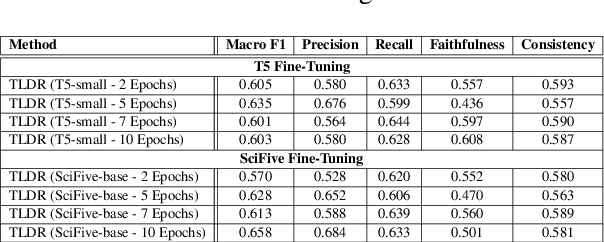
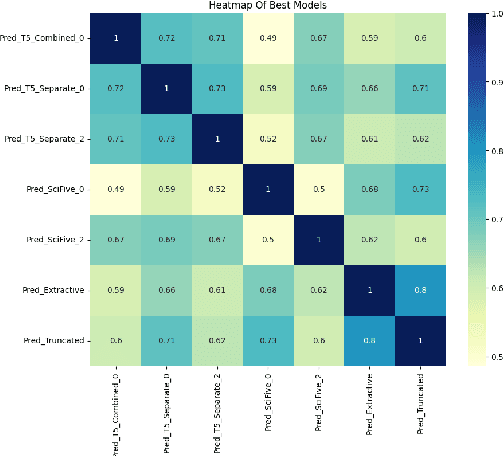
Abstract:This paper introduces novel methodologies for the Natural Language Inference for Clinical Trials (NLI4CT) task. We present TLDR (T5-generated clinical-Language summaries for DeBERTa Report Analysis) which incorporates T5-model generated premise summaries for improved entailment and contradiction analysis in clinical NLI tasks. This approach overcomes the challenges posed by small context windows and lengthy premises, leading to a substantial improvement in Macro F1 scores: a 0.184 increase over truncated premises. Our comprehensive experimental evaluation, including detailed error analysis and ablations, confirms the superiority of TLDR in achieving consistency and faithfulness in predictions against semantically altered inputs.
Abstraction-based Probabilistic Stability Analysis of Polyhedral Probabilistic Hybrid Systems
Mar 29, 2023Abstract:In this paper, we consider the problem of probabilistic stability analysis of a subclass of Stochastic Hybrid Systems, namely, Polyhedral Probabilistic Hybrid Systems (PPHS), where the flow dynamics is given by a polyhedral inclusion, the discrete switching between modes happens probabilistically at the boundaries of their invariant regions and the continuous state is not reset during switching. We present an abstraction-based analysis framework that consists of constructing a finite Markov Decision Processes (MDP) such that verification of certain property on the finite MDP ensures the satisfaction of probabilistic stability on the PPHS. Further, we present a polynomial-time algorithm for verifying the corresponding property on the MDP. Our experimental analysis demonstrates the feasibility of the approach in successfully verifying probabilistic stability on PPHS of various dimensions and sizes.
Bayesian Statistical Model Checking for Multi-agent Systems using HyperPCTL*
Sep 06, 2022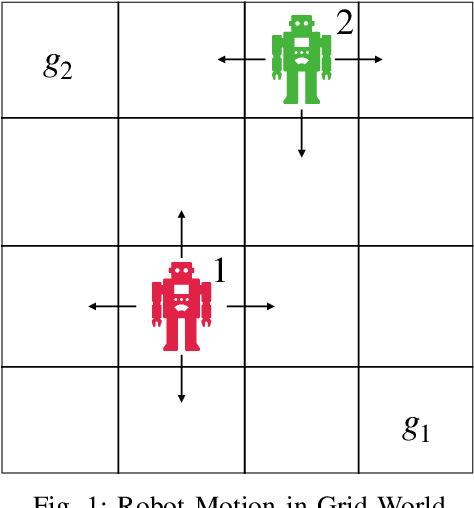
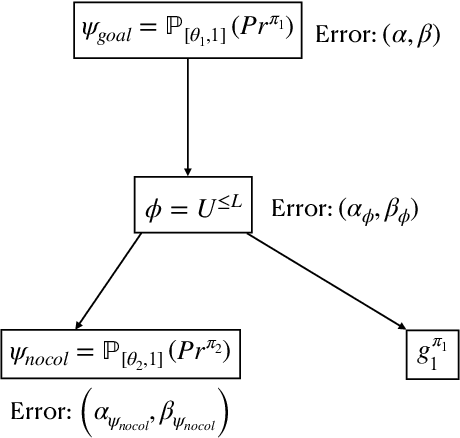


Abstract:In this paper, we present a Bayesian method for statistical model checking (SMC) of probabilistic hyperproperties specified in the logic HyperPCTL* on discrete-time Markov chains (DTMCs). While SMC of HyperPCTL* using sequential probability ratio test (SPRT) has been explored before, we develop an alternative SMC algorithm based on Bayesian hypothesis testing. In comparison to PCTL*, verifying HyperPCTL* formulae is complex owing to their simultaneous interpretation on multiple paths of the DTMC. In addition, extending the bottom-up model-checking algorithm of the non-probabilistic setting is not straight forward due to the fact that SMC does not return exact answers to the satisfiability problems of subformulae, instead, it only returns correct answers with high-confidence. We propose a recursive algorithm for SMC of HyperPCTL* based on a modified Bayes' test that factors in the uncertainty in the recursive satisfiability results. We have implemented our algorithm in a Python toolbox, HyProVer, and compared our approach with the SPRT based SMC. Our experimental evaluation demonstrates that our Bayesian SMC algorithm performs better both in terms of the verification time and the number of samples required to deduce satisfiability of a given HyperPCTL* formula.
Probabilistic Stability Analysis of Planar Robots with Piecewise Constant Derivative Dynamics
Oct 08, 2021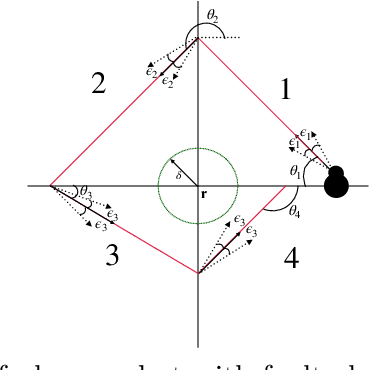

Abstract:In this paper, we study the probabilistic stability analysis of a subclass of stochastic hybrid systems, called the Planar Probabilistic Piecewise Constant Derivative Systems (Planar PPCD), where the continuous dynamics is deterministic, constant rate and planar, the discrete switching between the modes is probabilistic and happens at boundary of the invariant regions, and the continuous states are not reset during switching. These aptly model piecewise linear behaviors of planar robots. Our main result is an exact algorithm for deciding absolute and almost sure stability of Planar PPCD under some mild assumptions on mutual reachability between the states and the presence of non-zero probability self-loops. Our main idea is to reduce the stability problems on planar PPCD into corresponding problems on Discrete Time Markov Chains with edge weights. Our experimental results on planar robots with faulty angle actuator demonstrate the practical feasibility of this approach.
 Add to Chrome
Add to Chrome Add to Firefox
Add to Firefox Add to Edge
Add to Edge